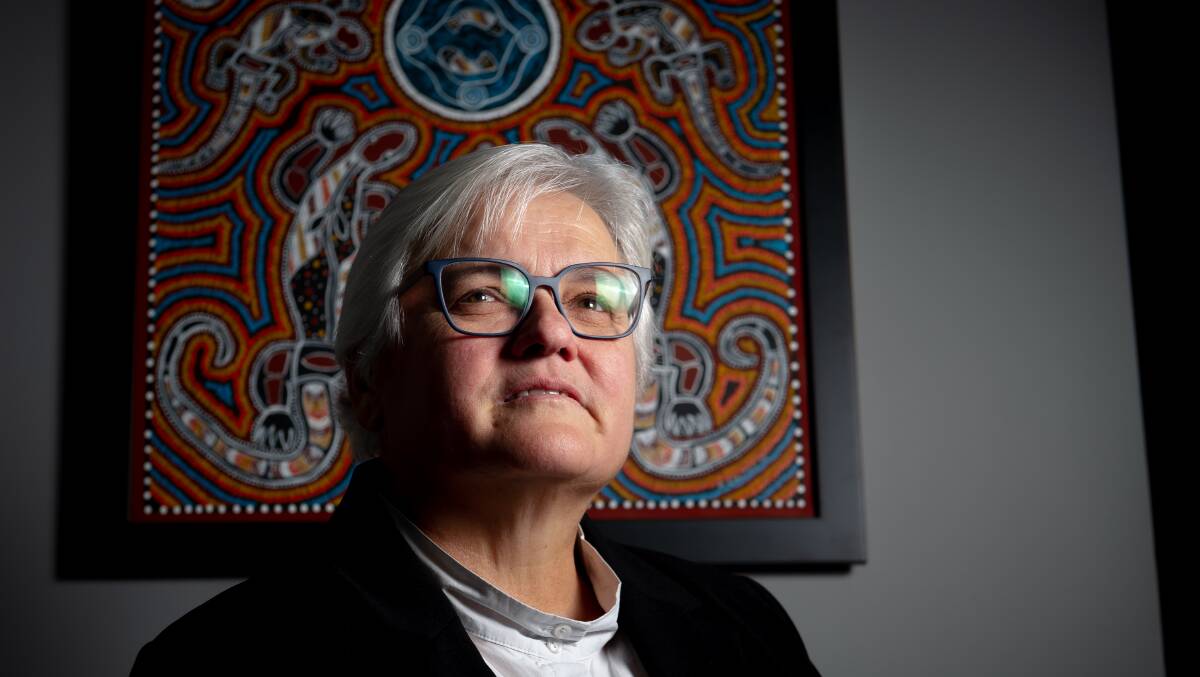For Katrina Fanning, the forthcoming referendum to establish an Indigenous Voice to Parliament will be the second time her "status as an Australian" has been put to a vote.
Subscribe now for unlimited access.
$0/
(min cost $0)
or signup to continue reading
The first was in 2017, when the public was asked if same-sex marriage should be legalised in this country.
The postal survey was "pretty rough" on the LGBTQI+ community, Ms Fanning recalls.
But the proud Wiradjuri woman fears that what Aboriginal and Torres Strait Islander people will face in the lead up to the Voice referendum later this year will be even harsher.
She is worried a divisive campaign will inflict further hurt on members of the stolen generation, and add to the mental health burden on vulnerable young people in communities with high rates of suicide.
The Voice has become a political football.

The Nationals are opposed, the Liberals are demanding more detail, while the Greens are pushing for progress on the other elements of the Uluru Statement from the Heart - treaty and truth.
Ahead of the official referendum campaign, Ms Fanning, a Canberra-based Indigenous leader and rugby league trailblazer, is appealing to political leaders to sideline the personal attacks and focus on helping the public understand what the referendum is - and just as importantly isn't - about.
"The lack of clarity around that (what the referendum is about) creates a lot of confusion for everybody, and it creates opportunity for quite negative conversations to occur," she said.
Ms Fanning spoke with The Canberra Times as she prepares to add another honour to a long list of accolades.
A former ACT Australian of the Year (2020) and Canberra Woman of the Year (2014), Ms Fanning will on Thursday be appointed an Officer of the Order of Australia for distinguished service to the Indigenous community through education and health initiatives, and her contribution to sport.
"An Officer of the Order is pretty significant," she said.
"When I talk to my elders back home, people who were excluded from mainstream opportunities for much of their life, the sense of pride for me is seeing how much pride they get.
"For them to see that their sacrifices have made a difference, and that my generation and the one afterward haven't forgotten them or their scarifies, is pretty important to me."
READ MORE
- Indigenous Voice: The ACT created one 15 years ago. Has it worked?
- Anthony Albanese says 'momentum is growing' for Indigenous Voice to Parliament
- Find out who made the Australian Honours list in 2023
- What's on this Australia Day in Canberra?
- Why January 26 should be Australia's day
- There are few reasons to stick with January 26 and more cogent ones to abandon it
A pioneer in women's rugby league, Ms Fanning represented the Jillaroos 26 times, including in the inaugural Australia-New Zealand test match in 1995.
Off the field, she has been involved in framing policies or helping deliver services for Indigenous communities for almost 20 years.
She is the most recent past chair of the ACT Aboriginal and Torres Strait Islander Elected Body - Canberra's own version of the Indigenous Voice.
The seven-member panel, which was established in 2008, is responsible for advising government and monitoring programs for First Nations people.
It also holds annual public hearings which allow members to grill senior officials.
Ms Fanning said whether it was through reports, a committee process or estimates-style hearings, the national Voice must be able to hold the parliament and government accountable.
"It (the Voice) shouldn't just be a small process of 'do you like this, or do you like that'," she said.
"That accountability and that ability to be proactive about the things that matter most to us is what ... the Voice should be able to focus on."


